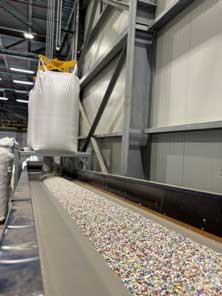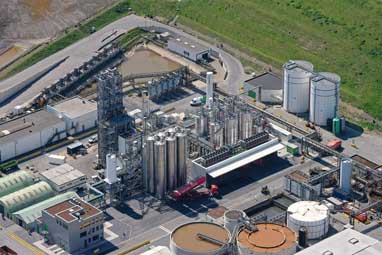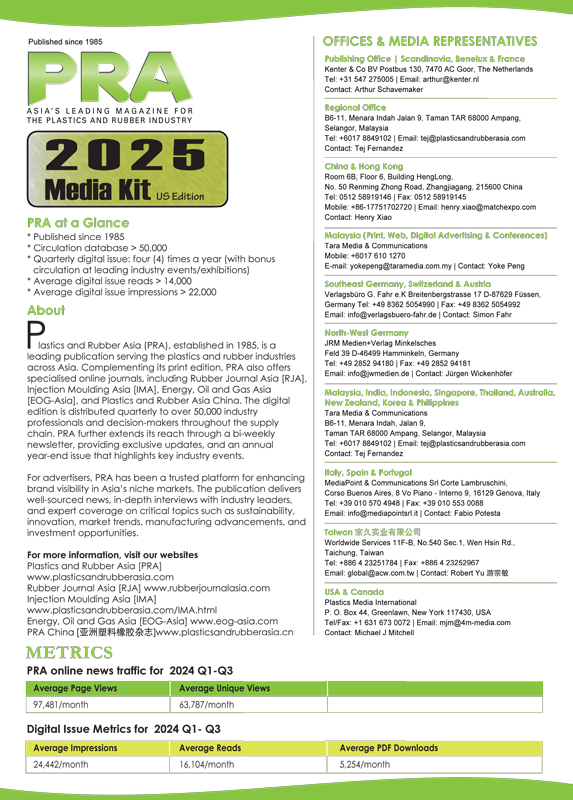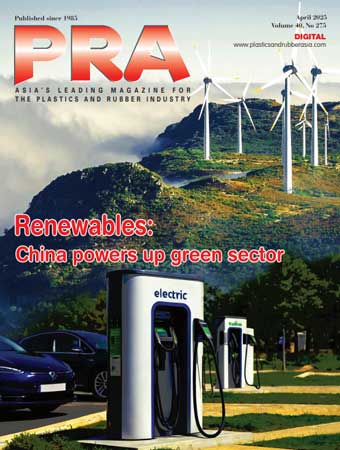Green materials: Borealis’ starts up compounding line in Belgium for rPO; Ineos Styrolution receives recycled styrene monomer from Indaver

Polyolefins maker Borealis says that its new compounding line for recyclate-based polyolefins (rPO) is now fully operational in Beringen, Belgium.
Using Borealis’ proprietary Borcycle M mechanical recycling technology, the line combines post-consumer and virgin polyolefins into rigid PP and PE compounds for applications in mobility, consumer products, appliances, and energy.
The Beringen facility is not only designed to process a wide range of recyclate flakes, offering versatility to meet diverse customer needs, but it also serves as a platform for collaboration, enabling customers to co-develop and test new solutions that bring recycled plastics into high-value applications.
“This installation is more than just a technological milestone, it’s a clear commitment to our customers,” says Craig Arnold, Executive Vice President Polyolefins, Base Chemicals and Circular Economy Solutions. “By expanding access to high-quality recyclate-based materials, we’re enabling our partners to accelerate their circular transformation.”
The new line complements Borealis’ recent acquisitions of Rialti and Integra Plastics, further strengthening its position as a partner in the transition to a circular economy for plastics.

In other news, the first truckloads of recycled styrene monomer (SM) have arrived at Ineos Styrolution’s Antwerp site. The material was supplied by Indaver from its new depolymerisation plant, the first facility in Europe dedicated to polystyrene recycling, inaugurated recently. Also located in Antwerp, this local set-up keeps the supply chain short and sustainable.
This is the first commercial-scale delivery of recycled SM in Europe. It enables the production of PS and other styrenics, including for food-grade, transparent, and medical applications.
This recycled feedstock adds to Ineos Styrolution’s sustainable styrenics portfolio, which already comprises mechanically recycled and bio-attributed grades, and demonstrates the company’s ability to deploy multiple recycling technologies for different waste streams.
“We are pleased that we can now offer styrenics from depolymerisation at market scale”, remarks Rob Buntinx, President EMEA, Ineos Styrolution. “
“With Plastics2Chemicals (P2C), Indaver is pioneering in the circular economy and advanced chemical recycling. By converting hard-to-recycle plastics into virgin-quality feedstock such as styrene, we are closing the loop and offering a sustainable alternative to fossil resources”, states Erik Moerman, Sales and Development Director P2C.
This milestone highlights what sets PS apart: it can be broken back down to its original monomer and rebuilt for high-value use. Depolymerisation is also more energy-efficient than other advanced recycling methods such as pyrolysis. It keeps the material in circulation, turning waste back into a valuable resource instead of landfill or litter.
Subscribe to Get the Latest Updates from IMA Please click here
©2025 Injection Moulding Asia. All rights reserved.











